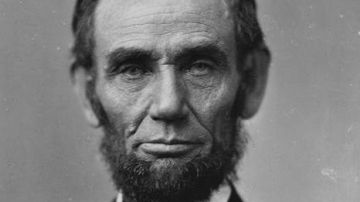5 Quotes to Honor Lincoln’s Birthday | Honest, Freedom, and Democracy
In addition to being one of the most popular presidents in U

Photo: Wikimedia Commons/Unknown author
In addition to being one of the most popular presidents in U.S. History, Abraham Lincoln was one of our nation’s greatest writers and thinkers. Anyone who has visited the Lincoln memorial in Washington, D.C. and read his words inscribed in marble knows how moving his Gettysburg and second inaugural addresses were. The turmoil we’ve seen since January 20th speaks to the urgency of Lincoln’s words on freedom, democracy, and the importance of balanced government.
In honor of Lincoln’s birthday (he would be 208 today!) we have put together some short quotations from Honest Abe worth reflecting on in 2017.
On the role of the people in participatory democracy:
“The people—the people—are the rightful masters of both congresses, and courts—not to overthrow the constitution, but to overthrow the men who pervert it.”
-September 16 and 17, 1959 Notes for Speeches at Columbus and Cincinnati
On the value of reading:
“A capacity, and taste, for reading, gives access to whatever has already been discovered by others. It is the key, or one of the keys, to the already solved problems. And not only so. It gives a relish, and facility, for successfully pursuing the [yet] unsolved ones.”
-September 30, 1859 Address before the Wisconsin State Agricultural Society
wp_*posts
On the nature of freedom:
“In giving freedom to the slave, we assure freedom to the free—honorable alike in what we give, and what we preserve. We shall nobly save, or meanly lose, the last best, hope of earth.”
-December 1, 1862 Message to Congress
On the need for reason above passion:
“Passion has helped us; but can do so no more. It will in future be our enemy. Reason, cold, calculating, unimpassioned reason, must furnish all the materials for our future support and defen[s]e.”
-January 27, 1838 Lyceum Address
wp_*posts
On words and their consequences:
“In times like the present, men should utter nothing for which they would not willingly be responsible through time and eternity.”
-December 1, 1862 Message to Congress

















